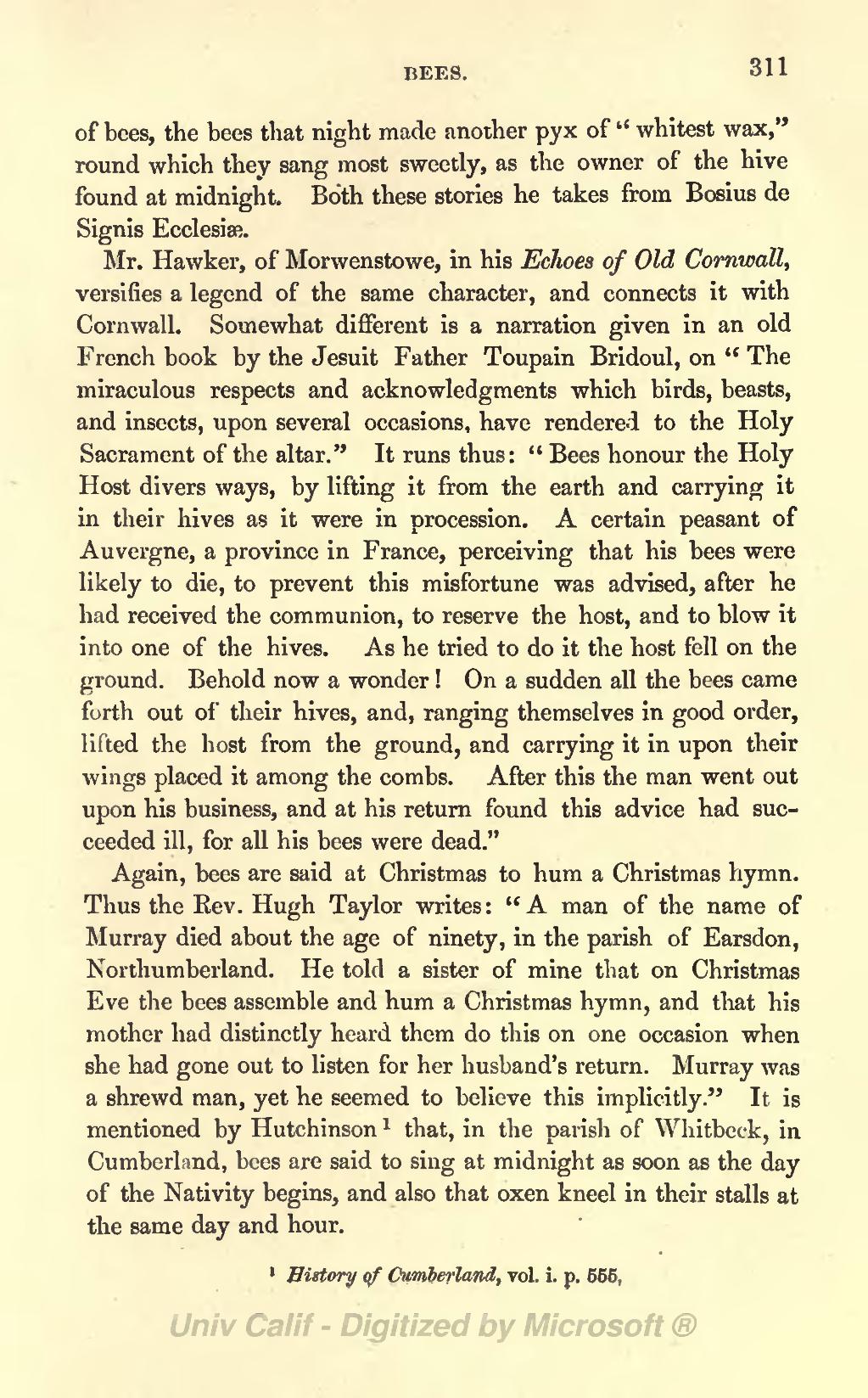of bees, the bees that night made another pyx of “whitest wax,” round which they sang most sweetly, as the owner of the hive found at midnight. Both these stories he takes from Bosius de Signis Ecclesiæ.
Mr. Hawker, of Morwenstowe, in his Echoes of Old Cornwall, versifies a legend of the same character, and connects it with Cornwall. Somewhat different is a narration given in an old French book by the Jesuit Father Toupain Bridoul, on “The miraculous respects and acknowledgments which birds, beasts, and insects, upon several occasions, have rendered to the Holy Sacrament of the altar.” It runs thus: “Bees honour the Holy Host divers ways, by lifting it from the earth and carrying it in their hives as it were in procession. A certain peasant of Auvergne, a province in France, perceiving that his bees were likely to die, to prevent this misfortune was advised, after he had received the communion, to reserve the host, and to blow it into one of the hives. As he tried to do it the host fell on the ground. Behold now a wonder! On a sudden all the bees came forth out of their hives, and, ranging themselves in good order, lifted the host from the ground, and carrying it in upon their wings placed it among the combs. After this the man went out upon his business, and at his return found this advice had succeeded ill, for all his bees were dead.”
Again, bees are said at Christmas to hum a Christmas hymn. Thus the Rev. Hugh Taylor writes: “A man of the name of Murray died about the age of ninety, in the parish of Earsdon, Northumberland. He told a sister of mine that on Christmas Eve the bees assemble and hum a Christmas hymn, and that his mother had distinctly heard them do this on one occasion when she had gone out to listen for her husband’s return. Murray was a shrewd man, yet he seemed to believe this implicitly.” It is mentioned by Hutchinson[1] that, in the parish of Whitbeck, in Cumberland, bees are said to sing at midnight as soon as the day of the Nativity begins, and also that oxen kneel in their stalls at the same day and hour.
- ↑ History of Cumberland, vol. i. p. 555.
